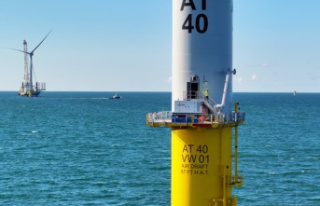MADRID, 4 Ene. (EUROPA PRESS) -
The activity of Spanish companies expanded again in December, thanks to the boost from the services sector, which allowed the composite purchasing managers index (PMI) to reach 50.4 points, compared to 49.8 the previous month.
The expansion of activity in December responded to the boost from the services sector, whose PMI reached its highest levels since July with 51.5 points from 51 in November, while the manufacturing PMI continued to show contraction in the sector, although at a slower pace, with a reading in December of 46.2 points, compared to 46.3 the previous month.
"With the Composite PMI Index approaching slightly expansionary territory, there is a strong indication that Spain's GDP will maintain its growth trajectory in the fourth quarter," said Cyrus de la Rubia, chief economist at Hamburg Commercial Bank.
In the case of the services sector, the expert highlighted that, in contrast to the economic weakness of Europe in general, "Spain seems to be charting its own course" and, instead of succumbing to the general economic slowdown, Spanish companies are still in a trajectory of expansion.
"Although it is far from a full-fledged boom, the resilience is surprising," De la Rubia acknowledged, especially considering the subdued mood in the manufacturing sector and the lackluster performance of the services sector elsewhere in the euro zone.
"This remarkable result can be attributed to two key factors: the new Government's commitment to expanding support measures for households and, secondly, the warm temperatures of recent weeks which may have inspired residents of Spain to go to the beaches, which has led to an increase in spending," he noted.
In December, Spanish service companies reported the largest increase since June in new order volumes, although they stressed that the rebound was mainly focused on the domestic economy, while new orders from abroad decreased again in December.
These underlying improvements in both activity and new orders encouraged companies to hire more staff in December, which saw the strongest employment growth since June, extending the current sequence of expansion to fifteen months.
The hiring of additional workers was accompanied by a spike in wage costs in December, so operating expenses continued to rise at the end of the year.
Likewise, overall input costs rose at a historically strong pace even as inflation eased to its lowest rate in four months, while companies again raised their rates at the strongest pace since May.













